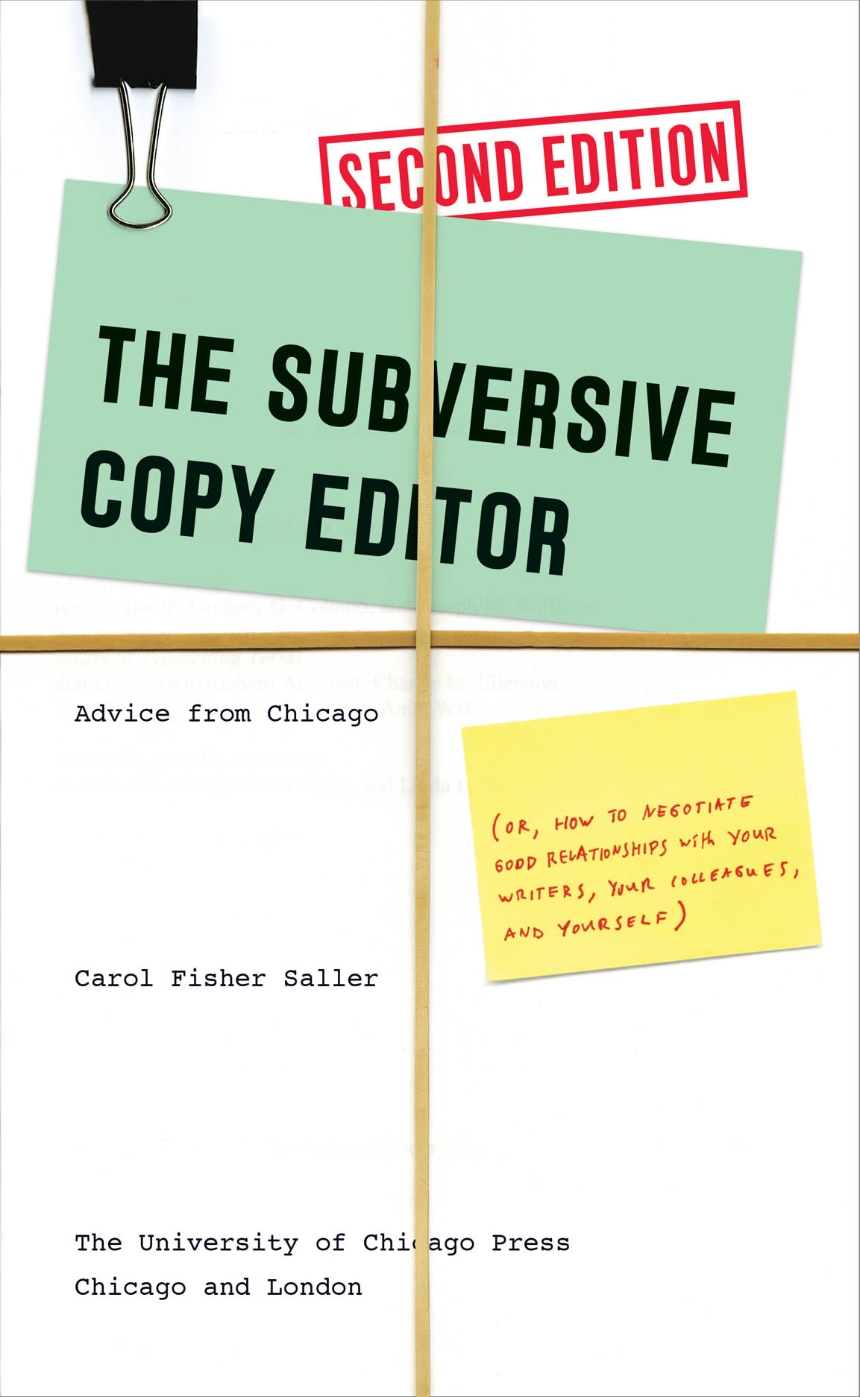
The brand-new student affiliate book club chose Carol Fisher Saller’s The Subversive Copy Editor (2nd edition, 2016) as its first book for discussion. We were intensely curious — especially those in the club who are early-career editors — about what “subversive” editing meant.
In October, we met online to review “Part 1: Working with the Writer, for the Reader.” We were delighted to find the book a quick and engaging read: not only full of practical advice and personal anecdotes but also spiced with snippets from “Editor’s Corner,” Saller’s column for CMOS Shop Talk: From The Chicago Manual of Style.
A Q&A editor for CMOS, Saller speaks plainly to editors of all levels of experience about what it means to edit subversively — that is, with carefulness, transparency and flexibility. She believes editors experience the most satisfaction and pride in our work when we see ourselves not as rule-enforcing fixers, but as guides who help writers connect and build trust with their readers. As she puts it, we need to “listen for the writer’s voice and work to protect and promote it.”
To that end, Saller offers advice on a range of topics including working with “difficult” authors, knowing when to break a style rule, and when you’re spending too much time on an editing job. She also addresses building productive relationships with clients and colleagues and surviving as a freelancer.
Meeting the author
In November, we met online again and had the pleasure of hosting Saller herself to discuss “Part 2: Working with Your Colleagues and with Yourself.” First, we asked her about her favourite editing and writing resources. She named these:
- Dreyer’s English by Benjamin Dreyer
- Because Internet by Gretchen McCulloch
- Talk on the Wild Side by Lane Greene
- The Business of Being a Writer by Jane Friedman
- On Revision by William Germano
Then we peppered the author with questions, including these two burning issues for early-career editors:
Q: What advice would you give to a new editor struggling to set boundaries for fear of losing work, especially when working with authors who may be inexperienced, unreliable and likely to use up a lot of a well-meaning editor’s time?
Carol Fisher Saller: If the writer’s expectations turn out to be completely different — say, they asked for copyediting when the work needs developmental — then withdraw from the project if you can. But if you need the project or want to work with it, be transparent with the writer about what the manuscript needs and what you’re able to bring to it. Second, contracts are important for clarifying expectations — [for example] round one includes this; round two includes that. Indicate what things might merit extra charges. You can always be generous if needed.
Q: In Chapter 13, “The Zen of Copyediting,” you say, “The problem is that there’s no end to the amount of fussing you can do with a document, whereas there’s a limit to the amount of money someone will pay you to do it.” How do you know when the editing is “done”?
CFS: This is sometimes a problem for less experienced editors. It’s important to pace yourself, so if you’re paid for 20 hours, you work for 20 hours. Focus on monitoring your progress. Some details may need to be sacrificed; editors have to learn to make those calls.
What do you think of Saller’s advice for “pacing yourself”? How confident are you about setting (or exceeding) boundaries for clients?
The student relations committee thanks Carol Fisher Saller for permission to include her comments, and Miriam Bergeret, who organized and chaired both meetings and invited Saller to join us.
___
The Editors’ Weekly is the official blog of Editors Canada. Contact us.
Discover more from The Editors' Weekly
Subscribe to get the latest posts sent to your email.
